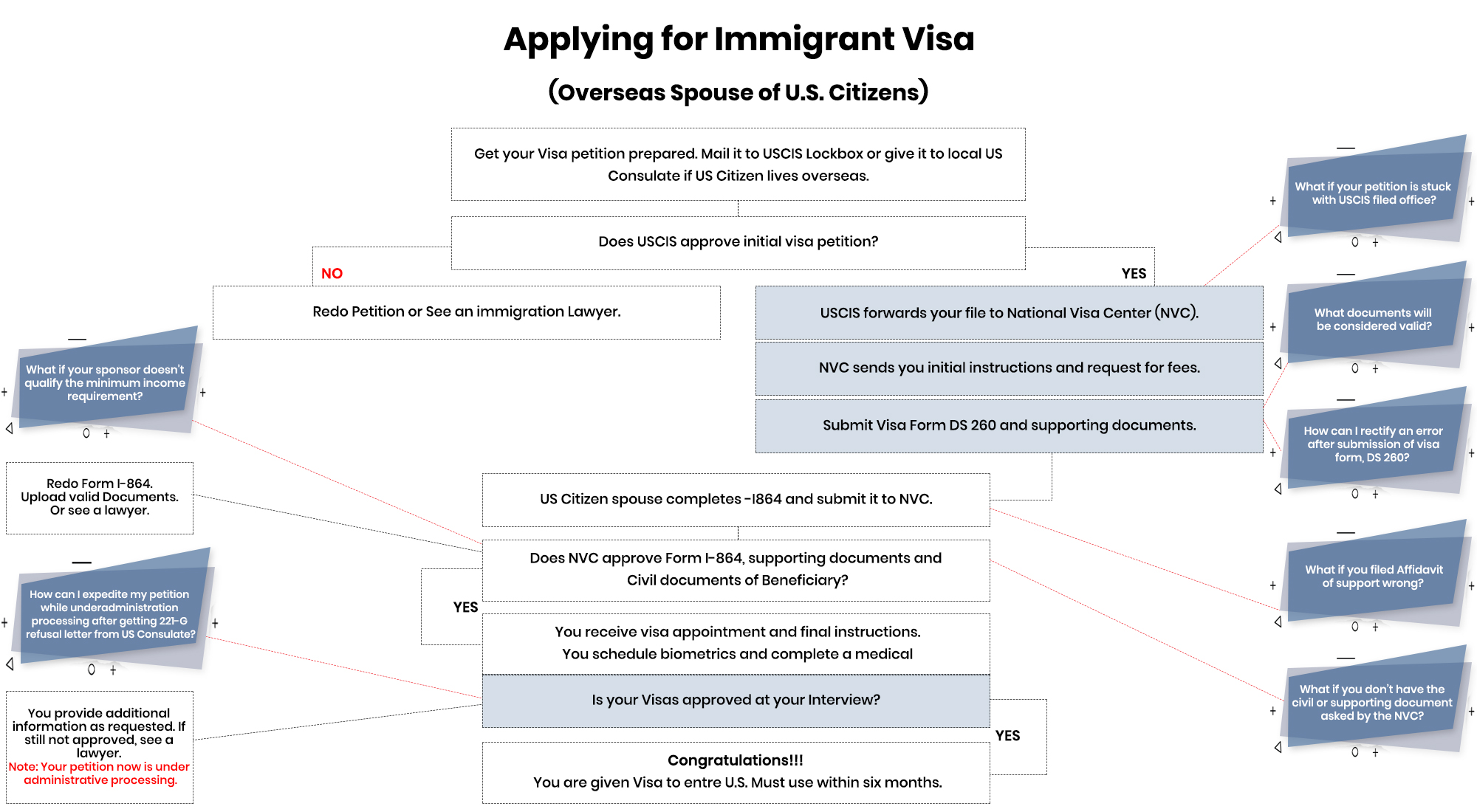FAQ I-130 Petition For Alien Relative
Frequently Asked Knowledge Based Questions
What is the purpose of the USCIS Form I-130?
Form I-130, Petition for Alien Relative, is the immigrant petition that permits US citizens and Green Card holders to sponsor their immediate relatives and get them US Green Cards.
Who can file Form I-130?
Any US citizen or permanent resident can file Form I-130, to sponsor their relatives.
Who can a US citizen file Form I-130 for?
A US citizen can file this form for his/her spouse, children, parents, and siblings. To file an immigrant petition for a brother/sister or a parent, the US citizen sponsor must be above age 21.
Who can a lawful permanent resident file Form I-130 for?
Permanent residents can file this form to get their spouses and children US Green Cards. Permanent residents cannot sponsor their parents and siblings for permanent resident status.
How many I-130 petitions can I file?
You can file petitions for your family members you intend to sponsor. You can sponsor all your eligible relatives, provided you meet the financial requirements.
Where can I get Form I-130 from?
You can download this form from the USCIS website or get it from local USCIS offices. You can also complete Form I-130 online.
How much is the Form I-130 filing fees?
Form I-130 has a filing fee of $535.
How do I pay the fees for the immigrant petition, Form I-130?
You can pay the fee through money order or a check. Remember that cash will not be accepted by the USCIS. You must mail the immigrant petition, supporting documents, and the form filing fee together, in one package.
What is the processing time for Form I-130?
USCIS processing times vary and the processing times for US citizens and permanent residents are both different. USCIS will adjudicate the applications filed by US citizens on behalf of their spouses and immediate relatives within a year. But the spouses of Green Card holders and other relatives of US citizens will have to wait for years to get their petitions approved.
What is the process of filing Form I-130?
US citizens and the permanent residents must both complete Form I-130 and mail it along with all the required supporting documents, to the respective USCIS office in the United States. If the beneficiary is in America, he/she can apply for adjustment of status by filing Form I-485 and become a permanent resident. If the beneficiary is abroad, he/she must go through consular processing.
Can I file Form I-130 while abroad?
You can file this form while in a foreign country. You can file it through an overseas US Embassy or Consulate.
Why should the sponsor file Form I-864, Affidavit of Support, along with Form I-130?
US citizens and Green Card holders who file immigrant petitions for their relatives must file Form I-864 along with Form I-130. Apart from sponsoring the beneficiary for a Green Card, the sponsor must financially sponsor the beneficiary. An affidavit of support is a legally binding contract and by signing this form, you promise the US government that the immigrant you are sponsoring will not become a public charge.
Does the approval of Form I-130 mean that my relative is a permanent resident?
No. Approval of Form I-130 means that your relative can move to the next step and apply for an immigrant visa or for adjustment of status. Your relative can apply for an immigrant visa if he/she is abroad or for adjustment of status if he/she is in the United States, followed by the approval of the immigrant petition filed by you.
What if the USCIS denies my I-130 petition?
USCIS will inform you of its decision in writing. However, you can appeal if the USCIS denies your petition. But USCIS very rarely denies I-130 petitions.
Which family members can a U.S. citizen file a green card petition for?
U.S. Citizens can file Immigrant Petitions for the following family members:
U.S. Citizens are generally able to obtain Permanent Residence much sooner for their spouses and minor children, than can Permanent Residents, as the USCIS considers these family members of U.S. Citizens “Immediate Relatives”, exempting them from visa availability backlogs that can take years to clear.
Which family members can a U.S. Permanent Resident file a green card petition for?
Permanent Residents can file Immigrant Petitions for the following family members:
Frequently, a “Visa Upgrade” strategy can be beneficial whereby a U.S. Permanent Resident petitions for a family member, and the U.S. Permanent Resident later Naturalizes and becomes a U.S. Citizen. In such cases, the individual can keep the original filing priority date they received when they filed the petition but can enjoy what is frequently (though not always) quicker visa availability times. Be sure to speak with your immigration lawyer about this strategy, as depending on what country they are from, sometimes family members of U.S. Citizens must wait even longer than those of Permanent Residents.
Your immigration attorney will go over the current Department of State Visa Bulletin with you and advise the most appropriate and expeditious strategy for bringing your family members to the U.S., or adjusting status (this should link to “Adjustment of Status” page) to permanent residence in the event they are already in the country. Any person who is not a U.S. citizen or lawful permanent resident (“green card” holder) requires employment authorization from the U.S. government to accept any work in the United States. Temporary visas and permanent green cards can be petitioned by employers, and sometimes, by a foreign national themselves on their own behalf.

